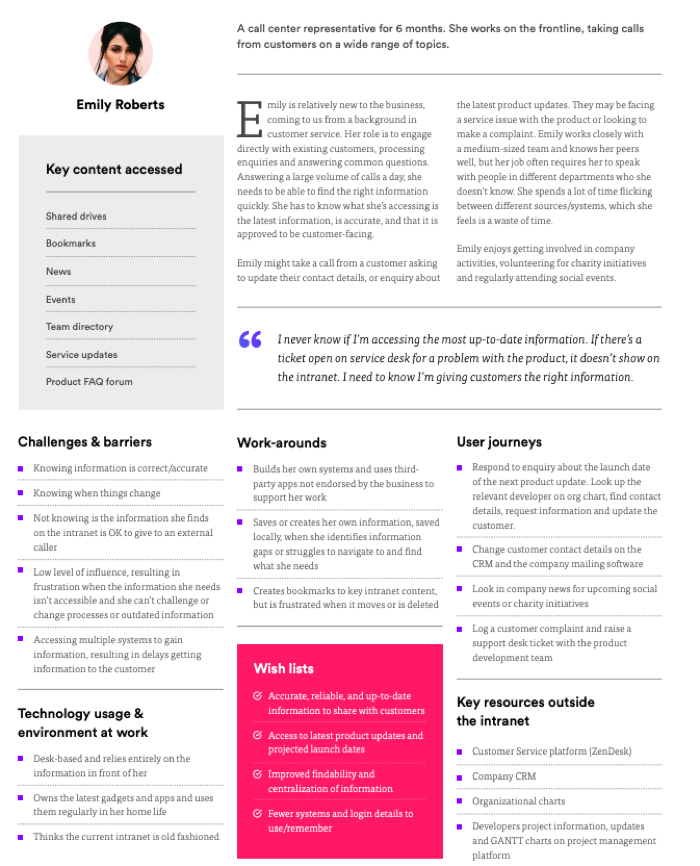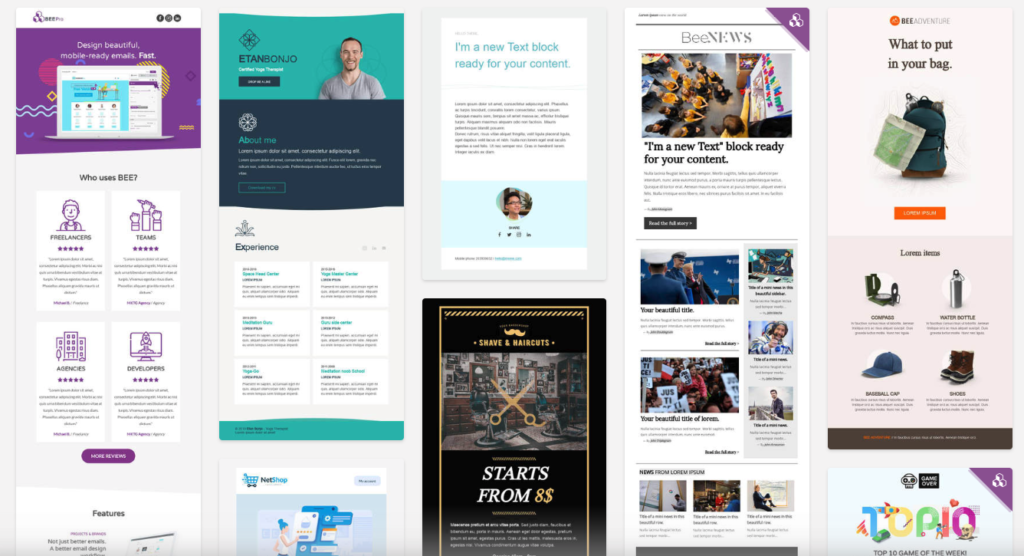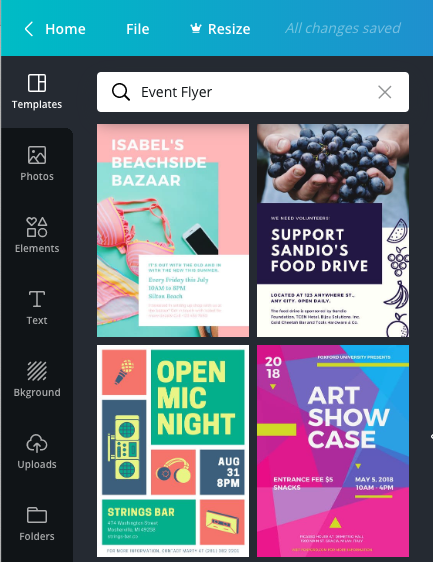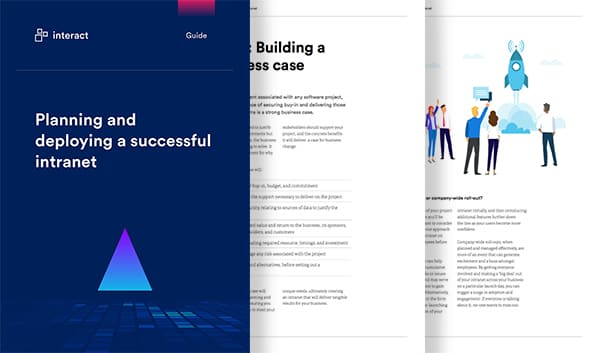15 hacks for the solo internal communicator

Internal Comms is still (relatively) young as a profession and as a result, many of us are continuing to fly (survive?) solo. If you’re juggling too many plates under the shadow of limited budget, resource, and support, we’ve got your back. Here’s our top hacks.
The role and value of internal communications may be rising on the management agenda, but the profession is still playing catch-up when it comes to budget and resource.
Many organizations continue to have rather ‘lean’ internal communication functions: 72% of respondents to this year’s State of the Sector survey operate as a team of five or less. What’s more, 62% declare that IC is just part of their remit: combining internal communications responsibilities with other roles, tasks, and priorities.
For those in smaller sized organizations, it’s a tougher situation still. Just 25% of organizations with less than 1,000 employees even have resource for internal comms.
72% of organizations operate with an international communications team of five or less individuals.
For those of us going it alone or being dragged in multiple directions, it’s a tough gig. You need more budget, more resource; but to get that, you need to show the Big Bosses you’re delivering value and are worth the investment. To do that, you’ve got to do a good job in the first place. But how do you do that with tight purse strings and no help?
It’s the ultimate catch-22.
The good news is, you’re not alone: and it really is possible to deliver successful, strategic internal comms with limited budget and resource. We’ve pulled together some tips, tools and tactics that can help you #commshack your way to great internal comms.
#1. Identify and enlist help in the form of internal influencers
OK, there’s a touch of irony that the first tip about going solo is to, well, not go solo. However, the mantra of ‘many hands makes light work’ is a cliché for a reason.
In practically every organization, you’ll already have staff who are more vocal or willing to add their voice to internal discussion. Identify existing champions or internal influencers who can be called on to support, add to, or distribute your comms efforts, and give them the necessary tools or permissions they need to help you out.
#2. Get pal-y with other departments

Build your internal network. When you’re charged with putting together an internal message or campaign, it’s a good idea to tap into the expertise of those around you. HR will be hot on those issues facing your staff and the official party line, policies, procedures and more. They can also lend some gravitas if you’re looking to tap into line managers.
Marketing are a great resource for when you need some creative input, brand material or potential resource; and it never hurts to have IT on your side when you’re juggling different digital comms channels. Establish your go-to’s for support and keep them close.
#3. Use templates or forms for internal comms submissions
How many of us have been forced to battle the waffler, the corporate-speak addict, the lover of the extender metaphor?
It’s often our job as internal communicators to gather and push out content from across the business, but not everyone is a natural-born communicator. Give your colleagues a helping hand by creating some simple templates or a submission form that will help hone in their messaging.
Simple tools like the journalist inverted pyramid or clear form fields like ‘Heading’, ‘Who is this for?’ ‘What action do you want people to take?’ ‘When does this need to go out?’ can cut out many of the lengthy, headache-inducing rewrites faced by internal communicators. It’s a little extra effort upfront but will save huge amounts of time in the long run.
#4. Make it easy to add or submit user-generated content

Risk aversion to user-generated content is a challenge for many organizations – and comes at a cost for the internal comms function.
Your employees are a valuable source of content and comms. They’re your eyes and ears on the ground, their content is more likely to be trusted and engaged with by their peers, they’re the living and breathing essence of your company culture. Use them.
Your employees are a valuable source of content and comms.
Remove barriers to employee-generated content. Does every piece need sign off from you or senior management? Do staff have to send internal blogs or updates via IT anytime they have something to say on your intranet? Creating a submission process, giving staff appropriate permissions and being brave enough to grant autonomy can seriously help you out.
#5. Give staff a toolkit
It’s another one that requires a bit more work and time upfront but can deliver the returns in the long-run. If you’re encouraging staff to contribute as part of your internal communications strategy, ensure they have all the tools they need to do the job right.
This can include tone of voice or language guidelines, brand materials including high-res versions of your logo, fonts, and brand colors, templates, and any training or support material to get them drafting top-level comms on your behalf.
#6: Try Unsplash for great royalty-free images (and replace the default images on your intranet)
Visual content has a BIG impact on how well audiences engage with our comms, but getting great images without paying top dollar can still be a frustrating experience for many. Unsplash is my current top-ranking option for great photos that can lend support to any comms piece (you may have noticed).

One simple hack to tidy up the overall look and feel of internal comms efforts is to swap out the dry, old default images that auto-slot in when employees don’t take the time to add a custom one. This could be on People Directory profiles, for example; blogs, news stories, uploaded documents and more.
#6. Create a calendar and plan
By nature, some communications will inevitably need to be created on-the-fly, when there’s a timely or urgent message that needs to go out or when (ironically) internal communication breaks down, and someone fails to give you enough of a heads up.
Fail to prepare, prepare to fail.
However, a simple internal communications plan can keep your objectives and goals front of mind, ensuring you deliver that all-important value for those at the top table.
Rachel Miller of AllThingsIC has a basic internal communications plan template for top-level strategic planning; a simple spreadsheet that sets out key company dates, events or goals on a week-by-week or even monthly basis will help keep things organized and ensure you don’t drop the ball on the big stuff. Fail to prepare, prepare to fail!
#7. Build some audience personas
It falls under the umbrella of planning, but it’s worth noting. Personas are a common tool in the marketing industry, and no less valuable internally.
Every organization – regardless of size or industry – will have a diverse demographic of employees, each with different communication needs and preferences. Ensure you’re getting your message across in the most effective way possible to build value and credibility for those at the top.
Personas typically set out the profile of a particular employee type with information such as basic demographic info, their common challenges, issues of interest to them, how they tend to receive communication. HubSpot has a buyer persona building tool that can be helpful if you’re stuck on where to start; or see our great blog on what, why, and how to create internal communication personas here.

#8: Jazz up internal emails
In today’s digital workplace, there is no place for the flat text email. Zero. Zilch. None.
In internal comms, your staff ARE your customers.
Despite our best efforts and a plethora of different internal communications tools, the age-old email remains a necessary evil for many. Make sure yours don’t end up being auto-sorted into an abandoned folder or greeted with an automatic ‘delete’ on arrival.
There are a whole host of free templates and email builders out there, combining great banners, visuals, different layouts, clear calls-to-action and more.

Admittedly, most are designed for external customers: but in internal comms, your staff ARE your customers. The same principles apply. You can create HTML templates with little to no experience for newsletters and updates, whether from your intranet, email marketing platform, or simply using your own Outlook account.
#9. Try out Canva
Want to create visually compelling content, but lacking a professional diploma in how to use Photoshop or Illustrator?
Have no fear. If you haven’t discovered or used it yet, Canva is a handy and free-to-use (to a level) platform for creating great looking visuals. Add your own brand and visuals, choose your brand colors, browse the thousands of templates available. Who says you need an in-house design team to create beautiful images?

#10. Re-purpose content
In any business, there’s likely some great comms work going on already that you can nab and re- or up-cycle for internal use. It could be a case study compiled by Marketing that makes for a great success story to share internally, or perhaps your product team have some great concepts worked up that you can push out.
Collaboration opportunities exist all around you – if you can build a network and tap into them. See point 2.
#11. Harness the power of micro-blogging, photos, images, video, infographics and more
Not every internal communication needs to be a meaty 10-paragraph email or memo. In our social media-driven world, it can be surprisingly effective and efficient to go for the minimalist approach and give comms to your audience in easy to digest, bite-sized chunks or an eye-capturing image.

Got an update to deliver from the boss? Why not ask to capture it on video instead? With the quality of today’s average smartphone, we no longer need to worry about wrestling with the company camera and tripod. Let go of the need to edit or overlay videos with company branding: keep it simple, and you’ll generate a whole lot more content and engagement.
With the correct internal comms platform and a touch of creativity, it’s easy to get your message across – even in 280 characters or less.
#12. Learn how to (politely) say ‘NO’.
If you’re manning the internal comms ship one-handed, your time and resource is both limited and precious.
It can take some learning to master being your own gatekeeper, particularly in the face of senior stakeholders who passionately believe their message is a top priority and MUST be heard by all. But it’s a must.
When declining, give a valid reason: is the message specific to a particular department, rather than company-wide? Are there more pressing communications that need to go out as a priority? Offer alternatives where possible and do your best to stay on the good side (you might need their support, one day) – but if you need to say no, say it.
#13. Create easy (free) videos with Lumen5
This is one I’ve used myself more than once and I’d definitely recommend. The free version has some restrictions, but can still be used to create some great content.
It’s designed for social media video creation, but with video now ranking as the preferred medium of choice for consumers, it’s a powerful tool and trend we need to be embedding more into our internal communications. You can pick from a library of short clips or images, overlay with text and boom! Simple video comms in 10 minutes or less.
#14. ‘How to’ comms? Loom it.
Another free tool tip – especially handy if, like many internal communicators, you get charged with informing or upskilling staff on new tools, processes, products, platforms and more.
We learn better by watching than reading or hearing, and one of the best ways to engage staff is through a demo. Loom is a great browser extension and tool that lets you record a video of your screen, add annotations, and share away. So next time you’re asked to explain how something works, don’t write it up – video it.
#15. Measure as you go
Don’t wait until the threat of the annual budget and performance review is hanging over you to start crawling through your internal communications efforts in a bid to validate your role.
For every internal communications campaign you’re charged with delivering – whether that’s a one-off effort to educate staff on a business change, or ongoing communication to raise awareness of this year’s charitable cause – set yourself a clear objective upfront and determine how you’ll measure success. Will it be through quantitative data, such as opens, clicks, visits, responses or comments generated? Or perhaps more qualitative feedback from staff focus groups, questions and surveys?

Taking a few minutes to decide what success looks like and then gathering the data on conclusion will not only save valuable time (and headaches) come budget-bid time, but it can help you evolve and improve on your internal comms efforts as you go: learning from each effort and continually improving.
You’ve got this.
It can be isolating at times when you’re flying solo on delivering a company-wide strategy with limited support or buy-in. However, you’re not alone. The internal communications community is growing and upskilling all the time, especially as the need to engage employees continues to rise as a priority on the management agenda.
Learn to lean on the IC network: there are some incredible individuals out there to learn from and endless resources to help you make a real impact in your organization. Professional bodies range from the IABC, IoIC, CIPR and more; a simple search on the #InternalComms tag and you’ll be a part of the conversation.
Are you a solo internal communicator? Got a top tip for the internal comms community? Let us know and we’ll add it to the list. Tweet us @intranetexperts!
